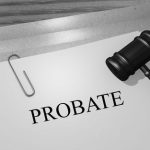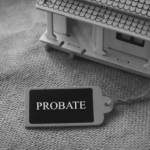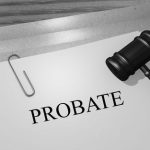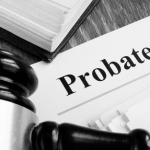Introduction
The period of time after the loss of a loved one is often stressful and filled with uncertainty. This is especially true if you are the person likely to be appointed personal representative of the decedent’s estate and are unfamiliar with the probate process. Once appointed, you’ll be left wondering, “What’s next?”
Duties And Obligations
Under N.D.C.C. § 30.1-18-03(1), the appointed personal representative has a duty to settle and distribute the decedent’s estate according to the terms of their will or, if they died without a will, the rules of intestate succession. They must do so as expeditiously and efficiently as possible while acting in the best interests of the estate and its beneficiaries.
In addition to the personal representative’s general duty to administer the estate, there are specific duties and obligations enumerated in N.D.C.C. § 30.1-18, including the following:
- Representing the decedent or their estate in lawsuits;
- Providing information to heirs and devisees regarding the appointment of the personal representative;
- Preparing an inventory of the decedent’s assets and debts and supplementing it as necessary throughout the duration of the probate;
- Employing appraisers to ascertain the fair market value of the decedent’s assets;
- Taking possession of the decedent’s assets; and
- Taking all steps reasonably necessary for the management, protection, and preservation of those assets.
Compensation
Performing the numerous duties and obligations required of the personal representative can be time consuming. It is not uncommon for a personal representative to complain that they are spending their free time doing all of the work while other family members reap the benefits. Lucky for them, N.D.C.C. § 30.1-18-19 allows for a personal representative to receive reasonable compensation for their services.
Additionally, N.D.C.C. § 30.1-18-20, permits a personal representative to recover from the estate any necessary expenses, including reasonable attorney’s fees, spent defending or prosecuting any proceeding in good faith regardless of success.
There isn’t a clear answer as to what constitutes reasonable compensation or expenses. However, to determine whether a personal representative’s compensation is reasonable, a court may consider the time, effort, and difficulty of the work involved, the size of the estate, the experience of the personal representative, and the provision of a detailed record justifying the fees (i.e. the nature, time spent, fee charged, and results for each task performed by the personal representative), and any other factors the court deems relevant.
Here are some examples of compensation and expenses that have been deemed reasonable:
- In Matter of Est. of Peterson, 561 N.W.2d 618 (1997), the court held that the personal representative’s compensation of $7,000 was reasonable given the estate was worth $681,175 and the personal representative had provided a detailed spreadsheet accounting for 528 hours worth of work. The Court also concluded that attorney’s fees of $10,173.98 were reasonable because the actions of the personal representative were undertaken in good faith, free from fraudulent intent, and for the benefit of the estate, including good faith attempts to carry out the terms of the will.
- In In re Est. of Hogen, 863 N.W.2d 876 (2015), the court held that the personal representative’s compensation of $27,500 and attorney’s fees of $333,272.23 were reasonable. This finding was based on the extensive volume of work performed by the personal representative, including reconstructing several years of financial records, the difficulty of the litigation, and the determination that the personal representative had acted in good faith.
- In Matter of Est. of Johnson, 897 N.W.2d 921 (2017), the court held that the personal representative’s compensation of $28,163.72 and attorney’s fees of $119,324.97 were reasonable. Specifically, the court stated that $400 per month was reasonable compensation for the personal representative given the probate lasted six years, included numerous court proceedings, and required the personal representative to prepare property for sale and perform other routine tasks. The attorney’s fees were deemed reasonable because they were incurred through the good faith efforts to benefit the estate.
Conclusion
The probate process can be overwhelming. If you have been, or are likely to be, appointed the personal representative of the decedent’s estate, you may want to retain an attorney. An attorney can help open a probate and get the personal representative appointed. After the personal representative has been appointed, an attorney can guide them through their various duties and obligations and advise them as to the amount of compensation they may collect from the decedent’s estate.
If you have any questions regarding probate administration, please contact us! This article is for informational purposes only and is subject to our disclaimer.










